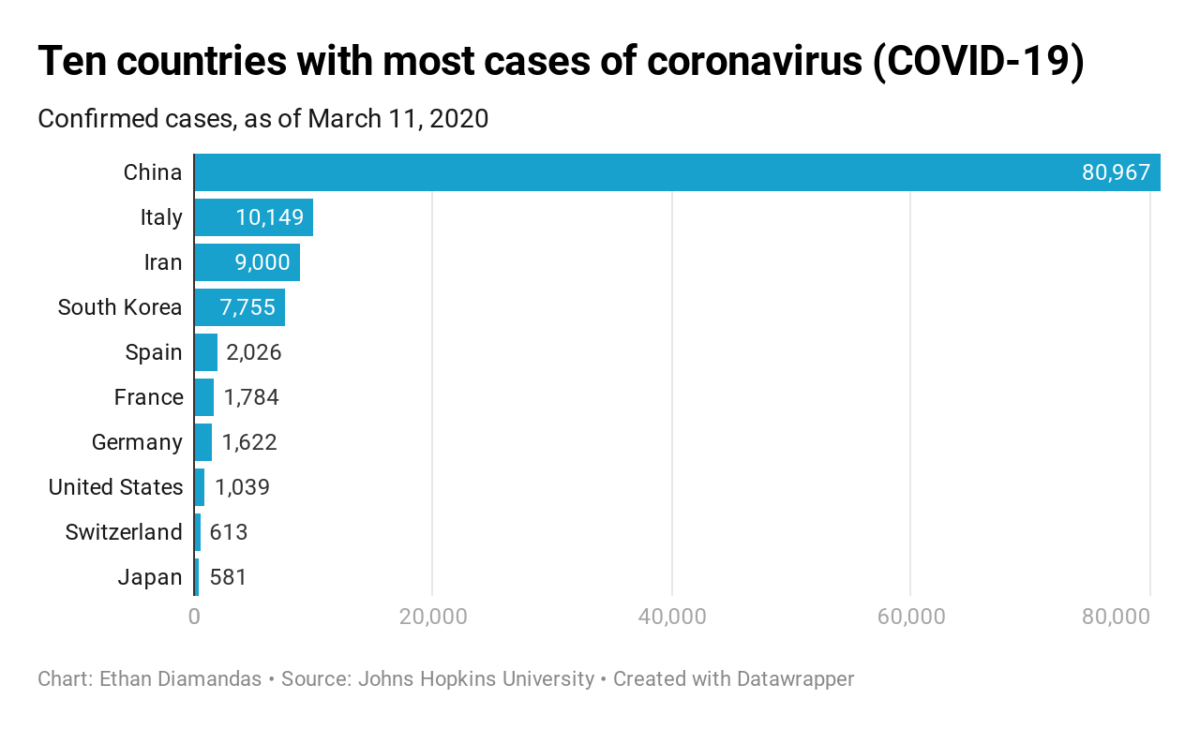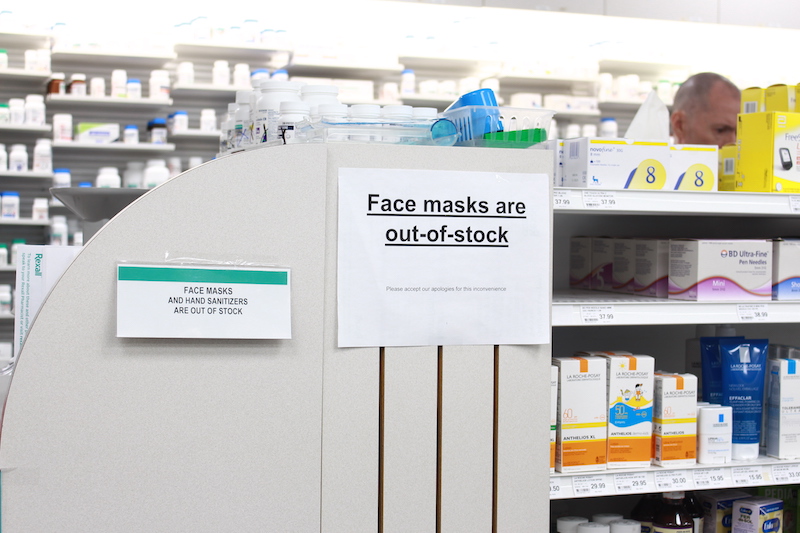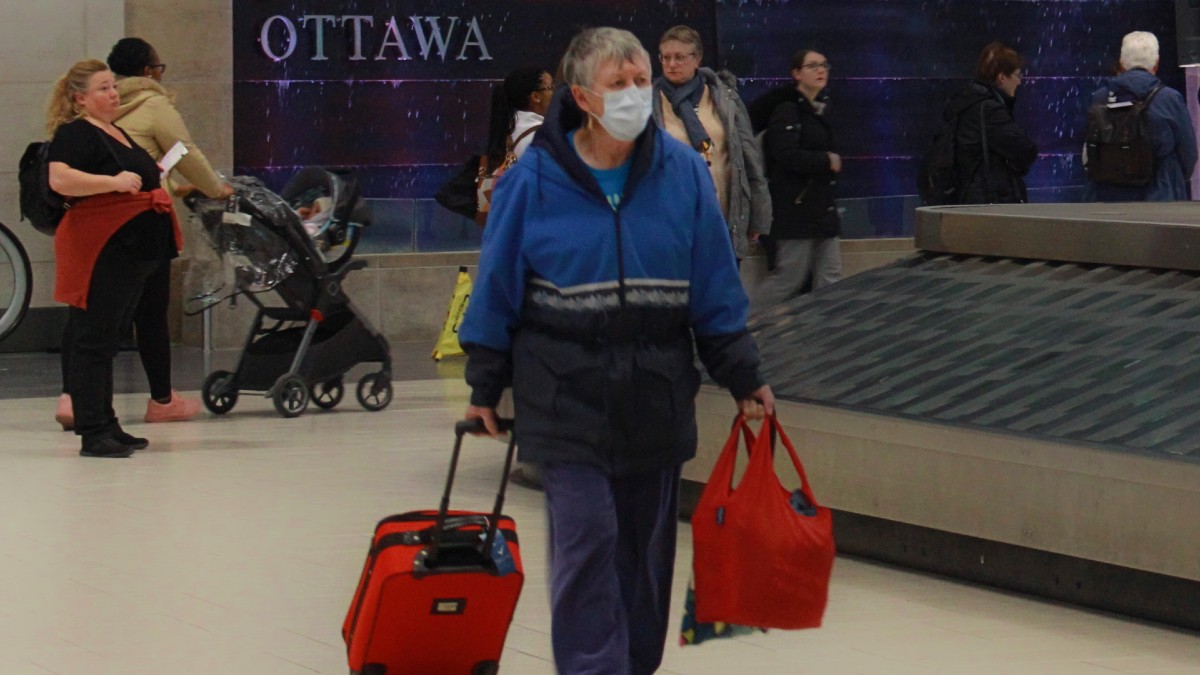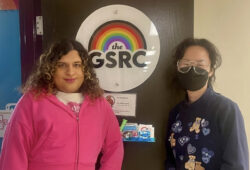NOTE: On April 6, Canada’s Chief Public Health Officer altered its guidance on wearing masks. Canada’s Special Advisory Committee on COVID-19 now says that wearing a non-medical mask, even with no symptoms, is a measure you can take to protect those around you in situations where physical distancing is difficult to maintain such as when using public transit or at the grocery store. Read more from Ottawa Public Health.
As Ottawa reports its first confirmed case of COVID-19, Ottawa Public Health says there is no need for people to wear face masks unless they are sick.
The message hasn’t stopped the masks from flying off the shelves across the city and beyond.
Victoria Broadfoot, 20, is one who purchased some surgical face masks as she prepared for a two-week trip to Japan in February.
The Carleton University student said she was encouraged to wear a mask because of the hundreds of COVID-19 cases popping up in Japan. She says she wore a mask on the 13-hour flight, as well as in busy areas in the country such as subway stations.
While she says face masks made her feel safer, Broadfoot wasn’t sure of their effectiveness.
“I kind of just wore it because I felt like that was the thing to do,” Broadfoot said. “Realistically I knew that I was equally as exposed in a lot of cases because I wasn’t keeping it on and sealed the entire time.”
In a statement, Ottawa Public Health (OPH) said masks may provide “a false sense of security” and may increase risk as people continually touch their faces to adjust their masks.
“When you think about the general public, there isn’t really any evidence that shows wearing a mask keeps healthy people from getting sick,” said Dr. Catherine Brown.
Brown says only health-care workers should wear face masks because they’re directly in contact with ill patients and are trained to properly put masks on and take them off.
Brown explains that respiratory viruses, such as COVID-19, spread through “droplets” that are released into the air when a sick person coughs or sneezes. The virus can spread once the droplets come into contact with another person and, according to Brown, masks can still leave people vulnerable to infection.
“If you’re wearing a mask it might protect you from your mouth but you can still get things through your eyes,” Brown said.

Despite these warnings from OPH, masks are still flying off the shelves across Ottawa. Capital Current spoke to 10 pharmacies, including Rexall and Shoppers Drug Mart, and they were all sold out of masks.
Salah Osman, a pharmacist at Proactive Pharmacy on Bank Street, says he sold out of masks weeks ago and hasn’t been able to get any since.
“The demand is high and the supply is low,” Osman says. “I was around for SARS … It is comparable to SARS, but on a larger scale.”

Some of the pharmacies are uncertain when the next shipment will arrive.
Alison Paris, manager at the New Edinburgh Pharmacy on Beechwood Street, says she has been ordering face masks everyday but has had no luck yet. Paris says at least five customers ask her about face masks on a daily basis.
Mark Barnes, a pharmacist at Respect Rx Pharmasave on Selkirk Street, says 10,000 face masks are scheduled to arrive by the end of the month, but he’s skeptical if that will happen because manufacturers are scrambling to meet the increasing amount of orders.
So far, Ottawa has only one recorded case of COVID-19, but that hasn’t stopped Broadfoot from taking precautions. While she says she won’t be wearing a mask in Ottawa, she will “definitely be more careful.”
Broadfoot says she’s washing her hands for longer, carrying hand sanitizer and even wiping down her phone at the end of the day.
In the meantime, Brown says practicing good “cough and sneeze etiquette” will go a long way to preventing infection, but hand washing is most important.
“I can’t say that enough,” Brown added. “Before you eat, after you get home from being out in public, washing your hands is really the best way to prevent the spread of germs.”
Brown says there is no need for Ottawa residents to panic over fears of coronavirus and, as of now, the most likely thing to make people sick is “the usual respiratory bug that we see every year in Ottawa.”
Related: Ottawa’s first coronavirus case confirmed




